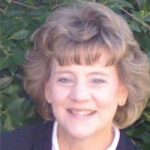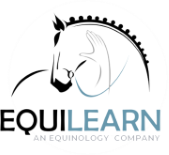EQ1110: Equine Myofascial Release Techniques Level II (Spring 2025)

Date:
Cost:
Duration:
*This course has been approved for 21 hours of continuing education credit in jurisdictions that recognize RACE approval.
This course is designed for those individuals who have already participated in the EQ1100 Equine Myofascial Release Techniques Level I class. In Level II, MFR techniques will be expanded and additional exercises to address the body’s dysfunction will be presented. There will be loads of problem solving with various labs and many discussions.
Each participant is asked to share one case study using Equine Myofascial Release Techniques (not required if the Level I and Level II classes are taken back-to-back). Documentation including initial exam, sessions completed and the outcome will be needed. Any visuals are welcome; please check with the office at least 3 weeks in advance if you require additional A/V equipment. The instructor will direct class discussions for each case study presented.
While the Level I course emphasizes the use of the right brain for listening to the body and using intuition, the Level II course participants will be using the left brain to investigate the possible causes of certain restrictions. Additionally, the course will cover specific rehabilitation situations.
In an effort to enhance the course, students are requested to bring the following to class:
- A list of common or consistent problems/restrictions you have encountered while performing MFR in the pelvis/hind end
- A list of common or consistent problems/restrictions you have encountered while performing MFR in the neck/shoulder/front end
- A list of rehabilitation challenges you have faced
This class runs from 8:00am-5:00pm daily with 60 minutes for lunch and 2 hours of evening studies.
- Myofascial/Osseous and Related Structures Review
- The Body’s Response and Adaptation to Injury and Dysfunction
- Presentation and Discussion of Existing Case Studies
- Advanced Myofascial Release Techniques
- Advanced Myofascial Stretching
- Additional Therapeutic Exercises Targeted to Specific Injury
- Exercises for Strength Training
Completion of EQ1100 Equine Myofascial Release Techniques Level I is required before moving on to Level II. (Please note that Level I and Level II are appropriate to take back-to-back if desired.)
While Level I externships do not have to be completed, the student should be comfortable with the material covered in the Level I course. Students of all levels are invited to take this course.
*This course is required for the Equinology® Equine Myofascial Release certification. The EQ1100 Equine Myofascial Release Level One course is also required. In addition, all students wishing to receive their EEMFR certification must also be certified as an Equinology Equine Body Worker (EEBW).
Required Text (same as Level 1 course):
Facilitated Healing Through Myofascial Release: Putting the Pieces Together for Horse and Rider
by Ruth Mitchell-Golladay
Course Materials (included in tuition):
Course Workbook & Handouts
Externship (included in tuition):
Externship Grading (Case Studies and Visual Presentation)
Suggested Reading:
The Horse in Motion: The Anatomy and Physiology of Equine Locomotion by Pilliner, Elmhurst, and Davies
Any good anatomy book
Ruth Mitchell-Golladay, PT, EEBW, CMT

Ruth, a Texan, received her graduate degree in physical therapy from The University of Iowa in 1972 and opened a private practice in Dallas in 1978. She then attended The Institute of Natural Healing Sciences in Colleyville, Texas, in 1991 for her massage therapy training.
She is Nationally Board Certified in Therapeutic Massage and Body Work and state licensed. Additionally, she obtained her Equinology Equine Body Worker certification in 2004. In 2022, Ruth became a Certified Animal Aromatherapy Specialist.
Ruth began her Myofascial Release education in 1987, has taken all John Barnes MFR courses (including equine), and was a Senior Instructor/Coordinator, Co-lecturer and Primary Lecturer for John Barnes, teaching over 130 courses for him from 1988-2002. From 1999 until her resignation in June 2001, she was the Primary Lecturer for the Barnes Equine MFR courses.
In 1990 Ruth opened the Equine Therapeutic Center which was based at Smith Mountain Lake, Virginia from 1998-2018. It is now based in the Dallas, Texas area from April through October and in the Rio Grande Valley of Texas from November through March. In both locations Ruth provides therapy for horse and rider. She uses her biomechanical knowledge to assist in determining a problem with the horse (or human) and then primarily utilizes Myofascial Release to decrease the symptoms and/or dysfunction. In addition, she uses certified pure tested grade essential oils, laser, electrical stimulation, ultrasound, Red Light Acupoint Therapy, and specialized taping techniques. To assist owner, trainer and/or rider in a home program of care she also includes exercises, including stabilization and core exercises for the horse and rider.
Ruth started teaching for Equinology, Inc. in 1999. She has taught Myofascial Release for horses at facilities in California, Virginia, Texas, Canada, England, Australia, New Zealand and South Africa. Additionally she has taught the Equinology, Inc. Equine Body Worker Certification Courses in the United States, England, New Zealand, South Africa and Australia, Canine MFR in Canada and England, and human MFR in England.
Ruth’s book, Facilitated Healing through Myofascial Release – Putting the Pieces Together for Horse and Rider was first released in 2001. The revised second edition is now available through animalmfr@gmail.com. She has also released a second book, Canine Myofascial Release which is available at the same email.
A $350 deposit is required to hold your spot in a course – the remainder of the tuition is due at least 45 days prior to the course start date (60 days for international instructors). The $350 deposit is nonrefundable and nontransferable, and is credited to the total tuition for the course. Confirmation letters, course outlines, required pre-study (if applicable), directions and lodging options will be sent when the $350 deposit has been received.
*This course has been approved for 21 hours of continuing education credit in jurisdictions that recognize RACE approval.
This course is designed for those individuals who have already participated in the EQ1100 Equine Myofascial Release Techniques Level I class. In Level II, MFR techniques will be expanded and additional exercises to address the body’s dysfunction will be presented. There will be loads of problem solving with various labs and many discussions.
Each participant is asked to share one case study using Equine Myofascial Release Techniques (not required if the Level I and Level II classes are taken back-to-back). Documentation including initial exam, sessions completed and the outcome will be needed. Any visuals are welcome; please check with the office at least 3 weeks in advance if you require additional A/V equipment. The instructor will direct class discussions for each case study presented.
While the Level I course emphasizes the use of the right brain for listening to the body and using intuition, the Level II course participants will be using the left brain to investigate the possible causes of certain restrictions. Additionally, the course will cover specific rehabilitation situations.
In an effort to enhance the course, students are requested to bring the following to class:
- A list of common or consistent problems/restrictions you have encountered while performing MFR in the pelvis/hind end
- A list of common or consistent problems/restrictions you have encountered while performing MFR in the neck/shoulder/front end
- A list of rehabilitation challenges you have faced
This class runs from 8:00am-5:00pm daily with 60 minutes for lunch and 2 hours of evening studies.
- Myofascial/Osseous and Related Structures Review
- The Body’s Response and Adaptation to Injury and Dysfunction
- Presentation and Discussion of Existing Case Studies
- Advanced Myofascial Release Techniques
- Advanced Myofascial Stretching
- Additional Therapeutic Exercises Targeted to Specific Injury
- Exercises for Strength Training
Completion of EQ1100 Equine Myofascial Release Techniques Level I is required before moving on to Level II. (Please note that Level I and Level II are appropriate to take back-to-back if desired.)
While Level I externships do not have to be completed, the student should be comfortable with the material covered in the Level I course. Students of all levels are invited to take this course.
*This course is required for the Equinology® Equine Myofascial Release certification. The EQ1100 Equine Myofascial Release Level One course is also required. In addition, all students wishing to receive their EEMFR certification must also be certified as an Equinology Equine Body Worker (EEBW).
Required Text (same as Level 1 course):
Facilitated Healing Through Myofascial Release: Putting the Pieces Together for Horse and Rider
by Ruth Mitchell-Golladay
Course Materials (included in tuition):
Course Workbook & Handouts
Externship (included in tuition):
Externship Grading (Case Studies and Visual Presentation)
Suggested Reading:
The Horse in Motion: The Anatomy and Physiology of Equine Locomotion by Pilliner, Elmhurst, and Davies
Any good anatomy book
Ruth Mitchell-Golladay, PT, EEBW, CMT

Ruth, a Texan, received her graduate degree in physical therapy from The University of Iowa in 1972 and opened a private practice in Dallas in 1978. She then attended The Institute of Natural Healing Sciences in Colleyville, Texas, in 1991 for her massage therapy training.
She is Nationally Board Certified in Therapeutic Massage and Body Work and state licensed. Additionally, she obtained her Equinology Equine Body Worker certification in 2004. In 2022, Ruth became a Certified Animal Aromatherapy Specialist.
Ruth began her Myofascial Release education in 1987, has taken all John Barnes MFR courses (including equine), and was a Senior Instructor/Coordinator, Co-lecturer and Primary Lecturer for John Barnes, teaching over 130 courses for him from 1988-2002. From 1999 until her resignation in June 2001, she was the Primary Lecturer for the Barnes Equine MFR courses.
In 1990 Ruth opened the Equine Therapeutic Center which was based at Smith Mountain Lake, Virginia from 1998-2018. It is now based in the Dallas, Texas area from April through October and in the Rio Grande Valley of Texas from November through March. In both locations Ruth provides therapy for horse and rider. She uses her biomechanical knowledge to assist in determining a problem with the horse (or human) and then primarily utilizes Myofascial Release to decrease the symptoms and/or dysfunction. In addition, she uses certified pure tested grade essential oils, laser, electrical stimulation, ultrasound, Red Light Acupoint Therapy, and specialized taping techniques. To assist owner, trainer and/or rider in a home program of care she also includes exercises, including stabilization and core exercises for the horse and rider.
Ruth started teaching for Equinology, Inc. in 1999. She has taught Myofascial Release for horses at facilities in California, Virginia, Texas, Canada, England, Australia, New Zealand and South Africa. Additionally she has taught the Equinology, Inc. Equine Body Worker Certification Courses in the United States, England, New Zealand, South Africa and Australia, Canine MFR in Canada and England, and human MFR in England.
Ruth’s book, Facilitated Healing through Myofascial Release – Putting the Pieces Together for Horse and Rider was first released in 2001. The revised second edition is now available through animalmfr@gmail.com. She has also released a second book, Canine Myofascial Release which is available at the same email.
A $350 deposit is required to hold your spot in a course – the remainder of the tuition is due at least 45 days prior to the course start date (60 days for international instructors). The $350 deposit is nonrefundable and nontransferable, and is credited to the total tuition for the course. Confirmation letters, course outlines, required pre-study (if applicable), directions and lodging options will be sent when the $350 deposit has been received.
